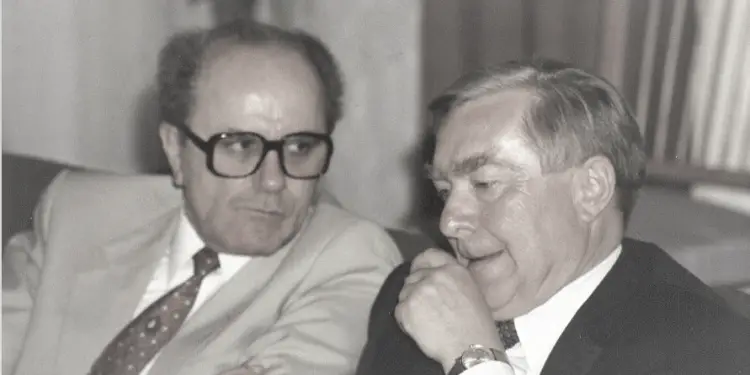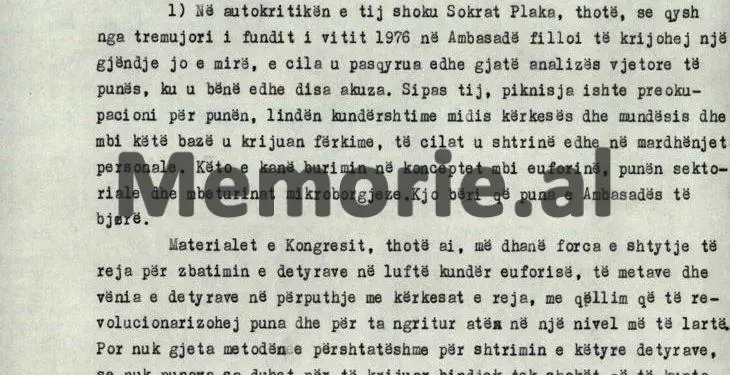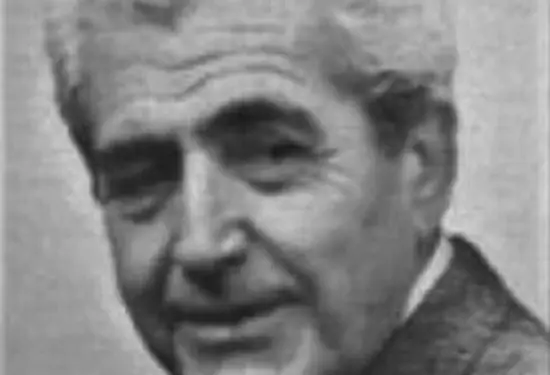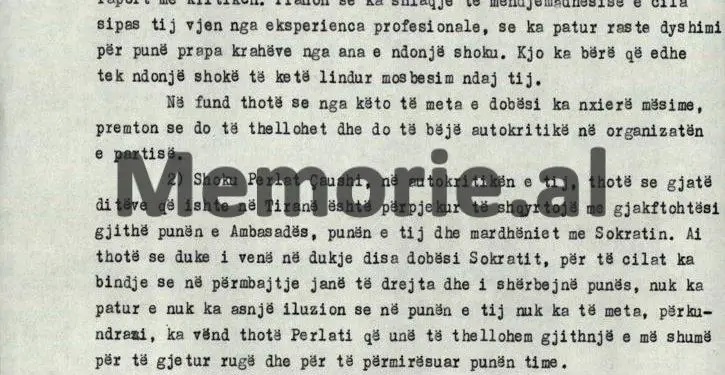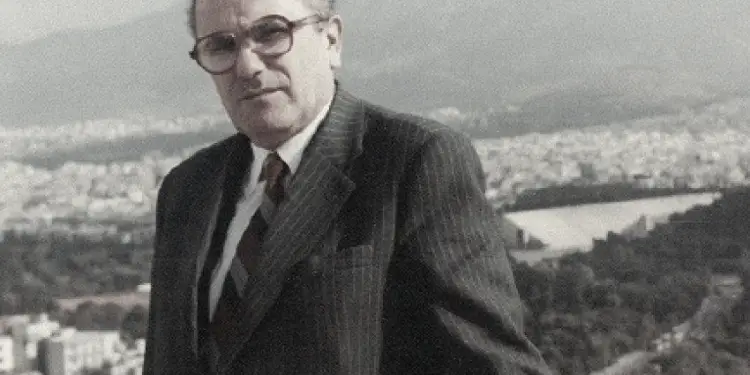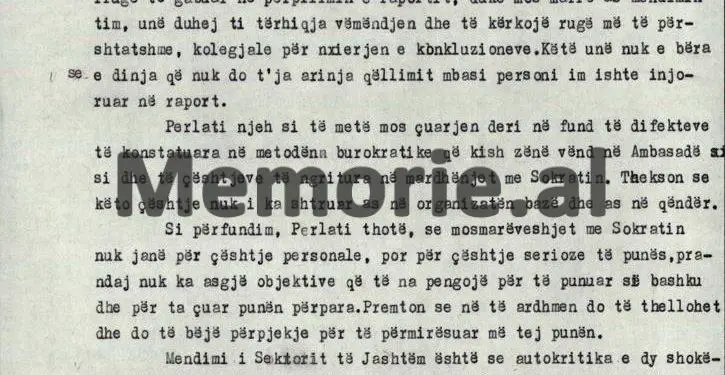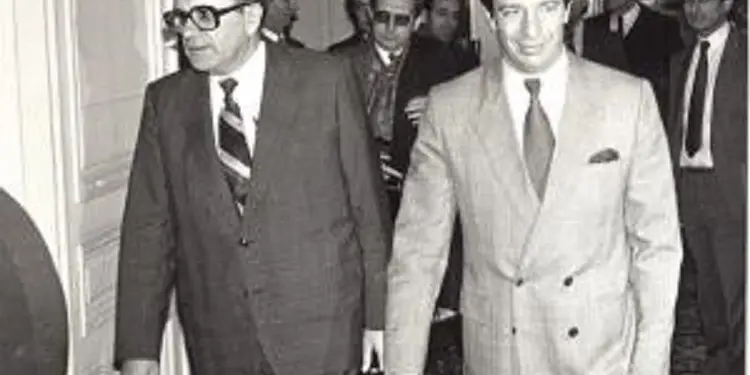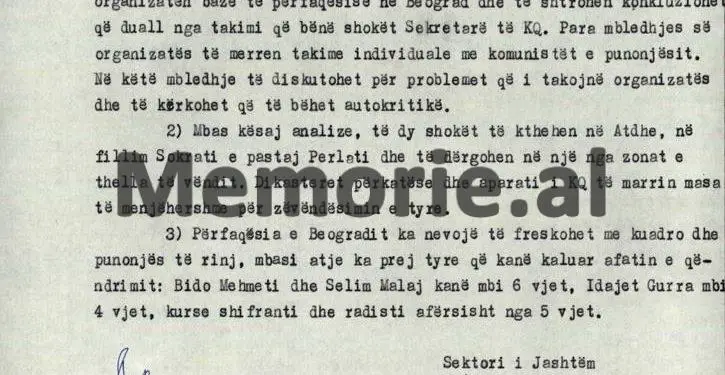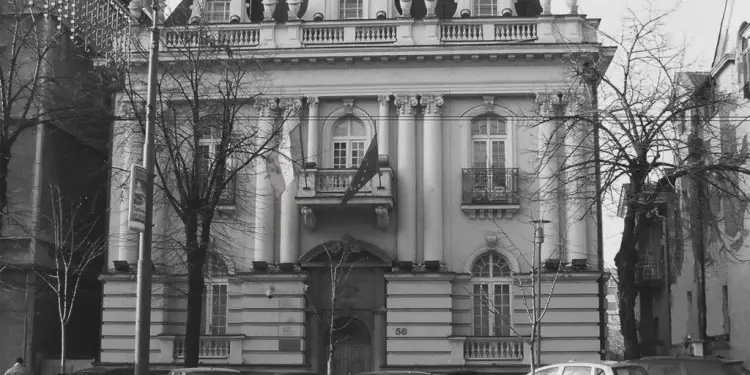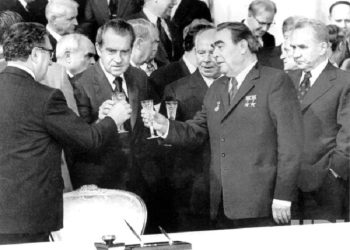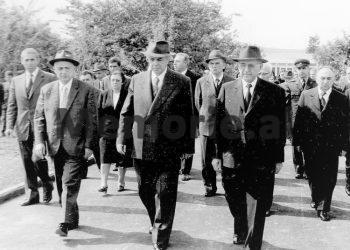Dashnor Kaloçi
The first part
Memorie.al publishes some archival documents labeled “Top secret”, extracted from the Central State Archive in Tirana (the fund of the former Central Committee of the ALP), which belong to the year 1979 and are part of a file where a long correspondence with letters, reports, relations, information, instructions, notes, orders, etc., between the Ministry of Foreign Affairs in Tirana, the apparatus of the Council of Ministers and the Central Committee of the PPSh, (according to the Sector of Relations with Abroad), where the head of that sector, Piro Bita, informs the secretaries of the Central Committee, Hysni Kapo and Ramiz Alina, the Prime Minister Mehmet Shehu, the Minister of Foreign Affairs, Nesti Nase and the Minister of Internal Affairs, Kadri Hazbiu, regarding the problem that had appeared in the Albanian embassy in Belgrade, between its two main holders, Ambassador Sokrat Plaka and the first secretary of that embassy, Perlat Çaushi, (who was the head of Foreign Intelligence at that diplomatic mission) , who for a long time were involved in a fierce conflict with each other, dividing the staff of that embassy into two groups, where the technical staff supported Ambassador Plaka, while the diplomatic staff supported Çaushi! Full report-information drawn up by the head of the Foreign Sector, of the apparatus of the Central Committee of the PPSh.
The highly secret document with the report-information prepared by the foreign sector of the PPSh Central Committee, sent to Ramiz Ali and Hysni Kapo, regarding the conflict between the two main holders of the Albanian embassy in Belgrade, Sokrat Plaka and Perlat Çaushi
Top secret
I N F O R M A T I O N
ON SOME OPINIONS OF THE FOREIGN SECTOR ON THE AUTO-CRITICISM OF SOKRAT PLAKA AND PERLAT CAUSHI, REGARDING THE DISAGREEMENTS THAT HAVE ARISED BETWEEN THEM
According to the orders of the secretary of the Central Committee, we called comrades Sokrat Plaka and Peralt Çaushi to the Foreign Sector and asked them to make a written self-criticism about the disagreements that arose between them at the embassy in Belgrade.
In his self-criticism, Comrade Sokrat Plaka says: since the last quarter of 1976, a bad situation began to develop in the embassy, which was also reflected during the annual work analysis, where some accusations were made.
According to him, the starting point was the preoccupation with work, the opposition between demand and opportunity arose and on this basis frictions were created, which also extended to personal relationships. These have their source in the concepts of euphoria, sectoral work and micro-bourgeois waste. This caused the work of the embassy to decline.
The materials of the Congress, he says, gave me new strength and impetus, for the implementation of tasks in the fight against euphoria, shortcomings and putting tasks in line with new requirements, in order to revolutionize work and raise it to a higher level.
But I didn’t find the appropriate method for laying out these tasks, because I didn’t work hard enough to convince my friends to understand the tasks, because I had flaws in the method for preparing the annual work analysis.
I didn’t create a work committee and I didn’t insist until the end, that the comrades give their evaluations, because in assigning the tasks, they started more from the desire and not from the possibilities of the comrades.
He says that, in his method, there are bureaucratic elements, the keeping of files should be simplified, the method of following up on political problems should be improved, and that he has not encouraged the initiative and self-reliance of his comrades, in order to open up horizons and work more quality.
It has not adequately dealt with residency problems and has not exercised assistance and control over this sector.
Now, says Socrates, he realized that these things should not happen, I did not reflect well, when I said that the solution to the problem could be achieved by transforming one or the other. This has the source that I broke before Perlat’s resistance, to resolve disputes.
I have never objected to criticism, he says, but now, he reflects, that there is a micro-bourgeois approach to work and this is also reflected in relation to criticism, he admits that there is a display of arrogance, which according to him, comes from professional experience, that there have been cases of suspicion, of behind-the-scenes work, on the part of a friend. This has caused some friends to distrust him.
In the end, he says that, from these flaws and weaknesses, he has learned lessons, he promises that he will delve deeper and make self-criticism in the Party organization.
- Comrade Perlat Çaushi, in his self-criticism, says that during the days he was in Tirana, he tried to coolly examine all the work of the embassy, his work, and the relationship with Socrates.
He says that, pointing out some weaknesses to Socrates, for which he is convinced that in content they are right and serve the work, he had and has no illusions that there are no flaws in his work, on the contrary, there is a place, says Perlati, for me to go deeper and deeper, to find a way and to improve my work.
He says that, in his relations with Socrates, he has never started from impure intentions, that he has done everything with good intentions, so that the work goes well, but my bad thing, he continues, is that in any case, the way as I told Socrates, the forms of expression, the saying of the words, were not appropriate, there were times, like the one during the analysis, when I manifested some signs of hot temper.
These have created in Socrates, the wrong impression, as if on my part, there is a lack of kindness, cooperation, a tendency to hinder him in his work, or what is worse, to denigrate him.
This, he continues, is not true at all, because not only do I not suffer from such a disease, such as envy for a friend, but also because I value Socrates, as an experienced cadre, as my colleague and superior, from which, I try to take advantage of.
The judgment I have expressed, he says, sometimes on some acute issue, such as that of political vigilance, should not be interpreted as a lack of political faith, on my part, for Socrates.
The goal was to criticize any tendency of his haste. The main reason for the birth of opposing opinions was the report prepared by Socrates in the annual analysis.
Despite the fact that he followed the wrong path, in compiling the report, not even taking my opinion, I had to draw his attention and look for more appropriate, collegial ways to draw conclusions. I did not do this, because I knew that I would not achieve the goal, according to my person, it was ignored in the report.
Perlati recognizes as a flaw, not taking to the end, the defects found in the bureaucratic method that had taken place in the embassy, as well as the issues raised in the relationship with Socrates. He emphasizes that: he has not raised these issues either in the basic organization or in the center.
In conclusion, Perlati says that: the disagreements with Socrates are not personal issues, but serious work issues; therefore, there is nothing objective to prevent us from working together and moving the work forward. He promises that in the future, he will deepen and make efforts to further improve the work.
The opinion of the Foreign Sector is that the self-criticism of the two friends is not profound. They do not properly identify the weaknesses and especially, they do not reveal the causes that led to these disagreements, in fact, that in one and in the other, but more pronounced in Perlati, the tendency of justification can be seen.
Both friends, in their self-criticism, promise to reflect, but from what Zija Koçiu and Haki Keta have ascertained, during their return from Istanbul, the relations between Socrates and Perlat are not very warm. They are waiting.
The secretary of the basic organization, Comrade Halit Çoku, who is these days on duty in Tirana, told us that: they are waiting and this is the opinion, that the disagreements between Sokrat and Perlat, arose only during the annual analysis, that this analysis, according to him, it was the fruit of Socrates’ work and that is where the work of the embassy comes to light.
Considering that their self-criticism is shallow, not promising, that the disagreements are serious, and extended to communists and other workers, including the sector of the basic organization, I propose:
- To send two comrades from the apparatus of the Central Committee (one from the Foreign Sector and the other from the group of instructors) to analyze the situation in the basic organization of the representative office in Belgrade and to extend the conclusions drawn from the meeting held by the fellow secretaries of the Central Committee. Before the meeting of the organization, take individual meetings with the communists and employees. In this meeting, discuss the problems facing the organization and ask for self-criticism.
- After this analysis, the two friends return to their homeland, first Socrates, then Perlati and are sent to one of the deep areas of the country. The relevant departments and the apparatus of the Central Committee should take immediate measures to replace them.
- The Belgrade representative office needs to be refreshed with new staff and employees, as there are some of them who have passed the term of stay: Bido Mehmeti and Selim Malaj, have over 6 years, Idajet Gurra over 4 years, while the operator and the radio operator, approximately from 5 years. Memorie.al
2.6.1977 FOREIGN SECTOR
The next issue follows




